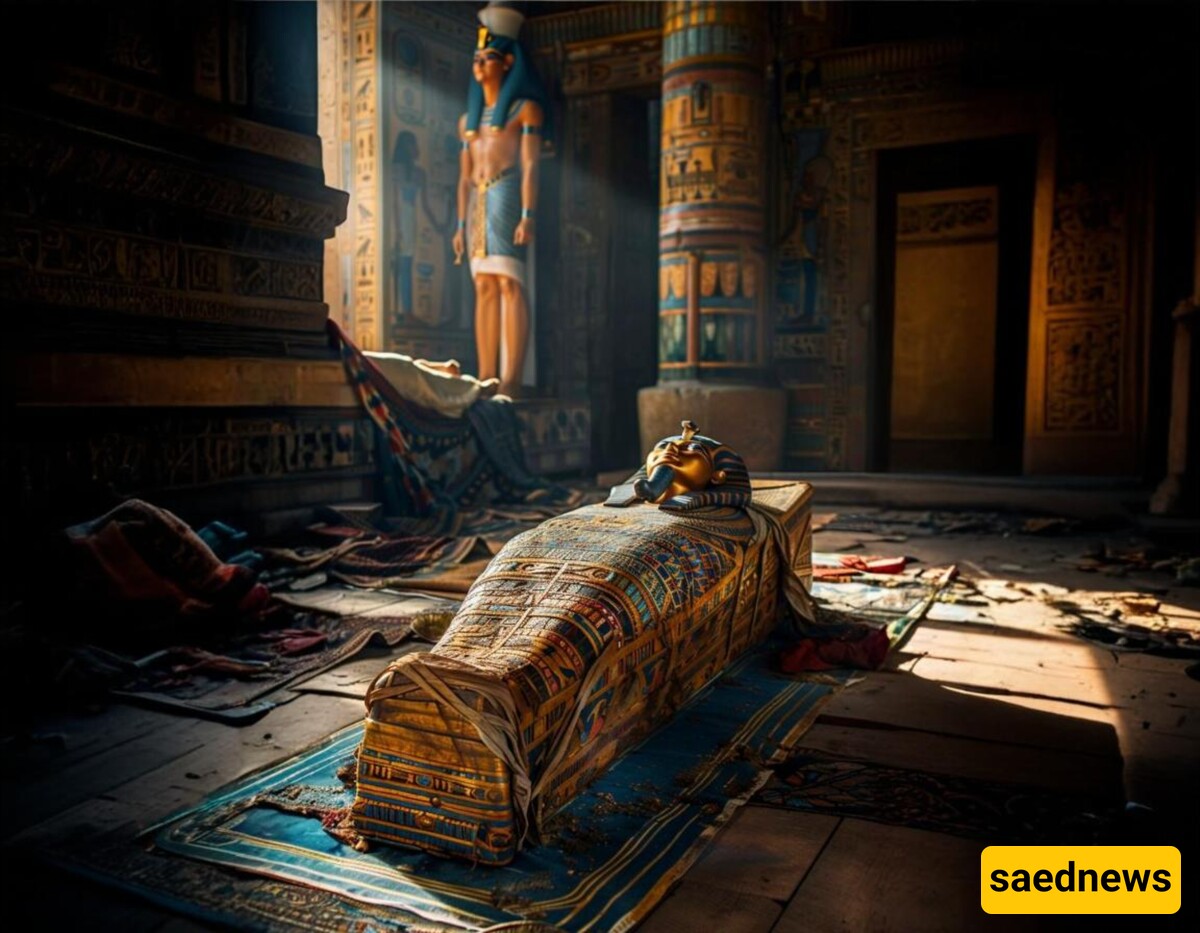SAEDNEWS: This real and scientific event closely resembles fictional movies, such as the "Mummy" series, where strange occurrences happen after opening an ancient Egyptian tomb. These beliefs are likely influenced by the effects of films.

According to SAEDNEWS, Archaeologists, after discovering an ancient tomb and stone sarcophagus in Alexandria, Egypt, are preparing to open it. This news has sparked reactions from social media users, who are warning about the possible Pharaoh’s curse.
Reports on the archaeological dig in Egypt reveal that around weeks ago, a black granite tomb was uncovered. It was found during coastal excavations in Alexandria. Some experts believe Alexander the Great’s tomb might also be in this ancient city.
From a scientific perspective, the notion of a Pharaoh’s curse, or any curse or spell in ancient sites, is invalid. It mainly stems from exaggerations about the stories and events surrounding these discoveries. For example, the death of Howard Carter, the archaeologist who discovered King Tutankhamun’s tomb in 1922, along with the death of several members of his team shortly after the discovery, fueled the myth of the Pharaoh’s curse.

In this tomb, a stone sarcophagus, about 10 feet (3 meters) long, was found, dating back to the Ptolemaic dynasty in Egypt, around 305-30 BCE. The sarcophagus is approximately 2 meters high and weighs an estimated 30 tons.
Experts still cannot definitively identify the owner of the sarcophagus but hope that studying the objects inside will reveal the person’s identity. Some archaeologists speculate that the tomb could belong to a high-ranking official from the Ptolemaic dynasty. In addition to the stone sarcophagus, a marble bust was discovered, possibly depicting the face of the person buried there.
The research team announced that they will soon open the sarcophagus, and the contents may provide valuable information about this mysterious tomb. Despite rumors suggesting the tomb might belong to Alexander the Great, archaeologists believe it likely belongs to a local noble or high-ranking official.
Amid the technical debates and differing opinions among archaeologists regarding the tomb and the identity of the buried individual, a wave of rumors and opinions has spread across social media as news of the imminent opening of the ancient sarcophagus was announced. Most of these discussions are based on superstitions, like the Pharaoh’s curse. It’s important to note that tomb construction was a significant tradition in ancient Egypt, and thousands of tombs have been uncovered through archaeological excavations. However, very few of these tombs belonged to Pharaohs or high-ranking officials. Only one tomb containing the body of a Pharaoh and related artifacts has been discovered by archaeologists, and the rest have been looted by grave robbers throughout history.


Most social media comments about reopening the sarcophagus express fear and concern about the potential presence of a Pharaoh’s curse and mummies inside the tomb. It’s worth noting that this real scientific event mirrors fictional films like the "Mummy" series, where strange events occur after opening an Egyptian tomb. The rumors are likely influenced by the horror and fantasy films about ancient Egypt and mummies.
Members of the research team shared warnings on Twitter, Facebook, and other social media platforms, claiming that the Pharaoh’s curse could result in imminent death.
From a scientific viewpoint, the Pharaoh’s curse, or any kind of curse or spell in ancient sites, has no basis and is mostly a result of exaggerating the stories and events that happen around such discoveries. For instance, the death of Howard Carter, the archaeologist who discovered Tutankhamun’s tomb in 1922, along with the deaths of several of his research team members shortly after uncovering the Pharaoh’s body, contributed to the myth of the Pharaoh’s curse.
It should be emphasized that this belief has no scientific foundation and is purely based on speculation. Often, we witness treasure hunters and grave robbers suffering sudden deaths after discovering a tomb, but in many cases, this is due to inhaling toxic gases in an ancient chamber or similar circumstances. These incidents are often exaggerated, and rumors about them are further fueled.

